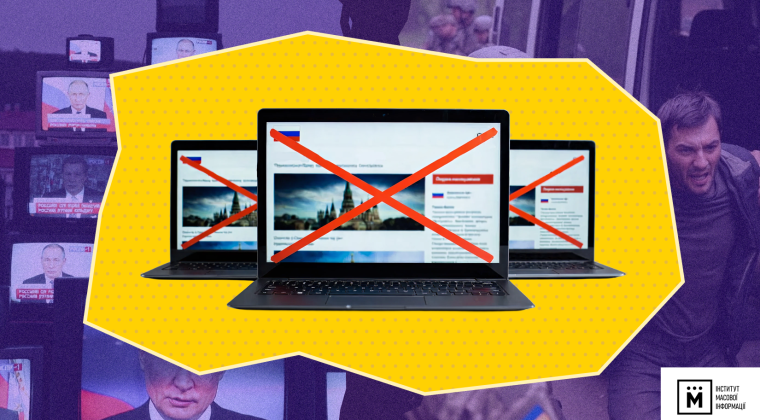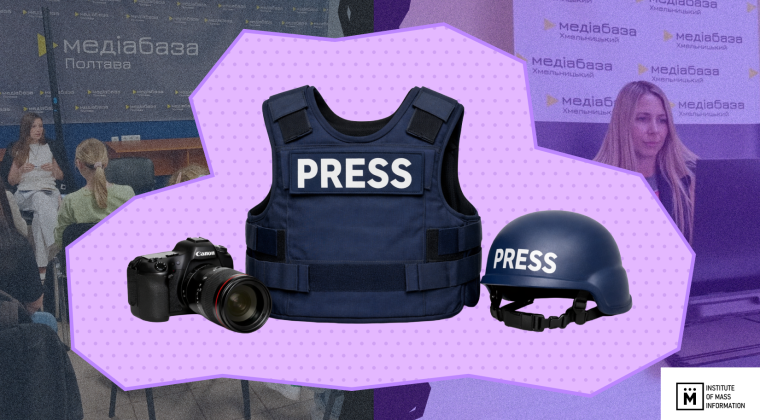Presented on 17 January by the Minister of Culture, Youth and Sports, Volodymyr Borodyansky, the draft bill on disinformation is meant to protect the information sphere in Ukraine, guarantee access to exact and balanced information, and increase media literacy. It is expected to reach parliament in March. Since the 130-page draft bill was first made public on 20 January, the measures have encountered wide criticism. In a statement published by the Institute for Mass Information, media professionals and NGOs called for the “dangerous” and “unacceptable” draft bill to be abandoned and for legislators to return to the stage of elaboration. They warn that it contains measures that would excessively control the media landscape and information exchange and place the working status of journalists in jeopardy.
The issue of disinformation having an impact on the quality of information in Ukraine, RSF is aware of the need to regulate the information and communication space to ensure that every citizen has access to independent and reliable information.
However, in its current form, the draft bill may prove ineffective or even counterproductive, and has the potential to seriously infringe upon freedom of opinion and expression and to undermine press freedoms.
Urgent recommendations :
Spreading disinformation online
The draft law introduces a criminal liability for spreading disinformation. RSF is concerned about the use of the term “disinformation”, which may place excessive pressure on journalists and infringe on their right to freedom of expression and information.
- RSF recommends reducing the scope of the bill so that legal responsibility may only apply in instances where it can be shown by a court of law that the information is deliberately false, that it aims to deceive or manipulate public opinion and that it is massively disseminated for that purpose.
- In any case RSF recommends removing any prison sentence for offences related to disinformation.
The draft law also provides that “information disseminators” (users of social networks who make their posts readable by everyone) are allowed to disseminate only reliable information and will have to verify the authenticity of the information beforehand. Such an obligation would make it possible to punish in court everyone who simply shares content considered as disinformation by the authorities.
- The right to freedom of expression does not depend on the accuracy or veracity of the speech expressed. Everyone has the right to express oneself freely. The obligation to disseminate reliable information and to verify the authenticity of the information are the deontological responsibilities of journalists, and not a legal obligation of citizens. No one should be punishable by law for disseminating false, inaccurate or misleading information unintentionally. RSF urges the Ukrainian government to delete the “information disseminators” category.
The creation of a new entity with unclear powers
The draft bill establishes a new body that will be responsible for both handling notifications of reported or flagged content and ensuring the removal of disinformation. RSF is concerned about the lack of information regarding the role and powers of this entity.
- RSF recommends the Ukrainian government to clarify the role of this newly created entity. A public entity should not be charged with telling true from false, right from wrong, and of taking decisions that may impact the right to freedom of expression without judicial overview.
This body would have the power to judge the veracity of content. As it currently stands, the proposal grants excessive discretionary powers of application to the authorities.
- This body should comply with standards of freedom of expression and opinion. As such, it should only delete content in accordance with the “three-part test” of Article 19 of the International Covenant on Civil and Political Rights.
- RSF urges the Ukrainian government to propose additional measures to ensure this body does not infringe on legitimate freedom of expression and opinion.
- Only a judge should be able to take decisions that infringe on the right to freedom of expression and information.
- Remedies should always be available to users in case of a decision of content removal or non-removal. Although this remedy could be only internal at the first stage, access to a judge should always be permitted as a last resort.
Algorithmic mechanisms
RSF would like to highlight the fact that this draft bill is treating not the cause of disinformation, but rather its symptoms. Indeed, RSF regrets that this bill does not aim to increase the transparency of algorithmic mechanisms – mechanisms aggregating, sorting and prioritizing information online – which enable disinformation campaigns to achieve greater visibility. It is these algorithmic mechanisms that give so much importance to the fake content, thanks to the mechanisms of virality that they confer to them.
- Rather than giving a special body the power to take decisions over all content, the bill should give platforms the obligation to actively fight against hateful content and content that is deliberately manipulative, under the control of this body. It should give platforms a series of obligations to fight against abusive content, to protect legitimate speech, as well as to ensure the transparency of their algorithmic mechanisms.
- The new entity created by the bill should be tasked with ensuring that platforms respect their obligations. It should have the power to fine them if they abusively restrict free speech or fail to abide by their transparency obligations.
- Platforms’ transparency obligations regarding their algorithmic mechanisms should also be laid out in greater detail.
“Professional journalists”
The draft bill establishes the creation of a new body: the Association of Professional Journalists of Ukraine. This special entity, shaped by the State, is supposed to be independent and would be the only entity authorized to deliver press cards. Only journalists that are members of this association will have the status of “professional journalists”, others will be considered as “journalists”. Ordinary journalists will lose some of their professional protections, such as the ability to be accredited by governmental bodies, to enter and work in conflict zones, and their rights to criminal protections according to special articles of the Criminal code.
- The right to freedom of expression and information is a right of all citizens, which cannot be conditioned by a status. This proposal introduces the possibility of restricting the right to exercise the freedom to inform by setting very strict criteria for obtaining a press card.
- RSF urges the Ukrainian government to reconsider this proposal and promote self-regulatory options.
Trust index for media outlets
Finally, RSF is concerned about the creation of an index of trust granted to media outlets according to criteria approved by the State Commissioner.
From the information RSF gathered, this index would rank media outlets based on their ability to comply with journalism ethics and standards, with the aim of assisting users in identifying credible sources of information. Though participation would be strictly voluntary, RSF is concerned that such an index could lead to a form of prior authorisation to speak out and disseminate news and information or to some form of censorship or arbitrary discrimination. Rather than ranking media outlets, RSF recommends that the Ukrainian government promote self-regulatory tools that favor compliance with professional norms and ethics.
In that regard, RSF, in partnership with the European Broadcasting Union (EBU), the Global Editors Network (GEN) and Agence France Presse (AFP), launched the Journalism Trust Initiative. This standard features 18 clauses that range from ownership and sources of revenue to the editorial process, including topics such as correction policies, the labelling of opinion or sponsored content, and ensuring accuracy. Media outlets could conduct self-assessments and disclose the results voluntarily.
Ukraine is ranked 102nd out of 180 countries in RSF’s 2019 World Press Freedom Index.



